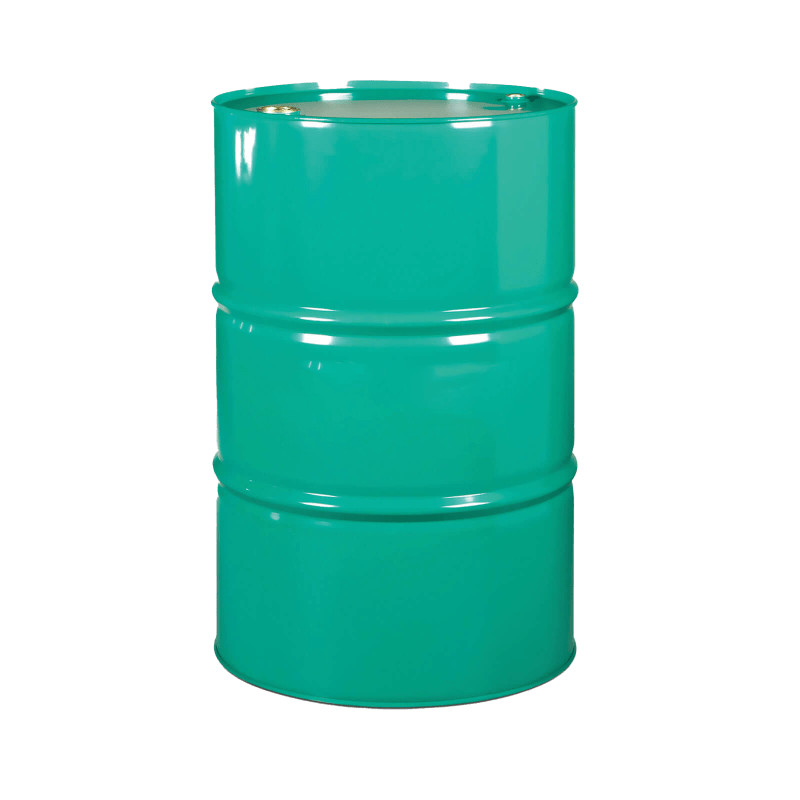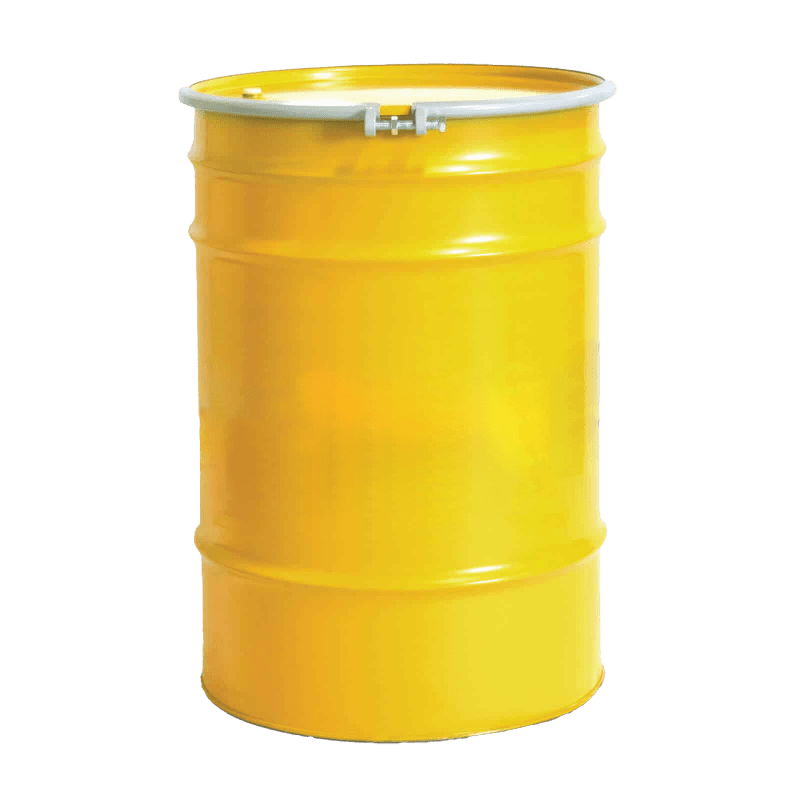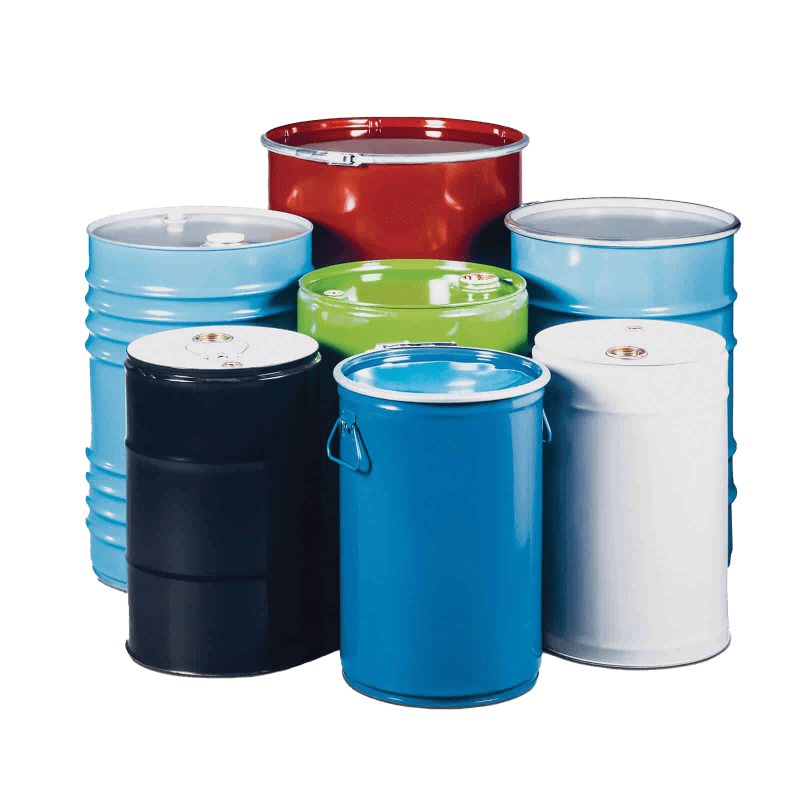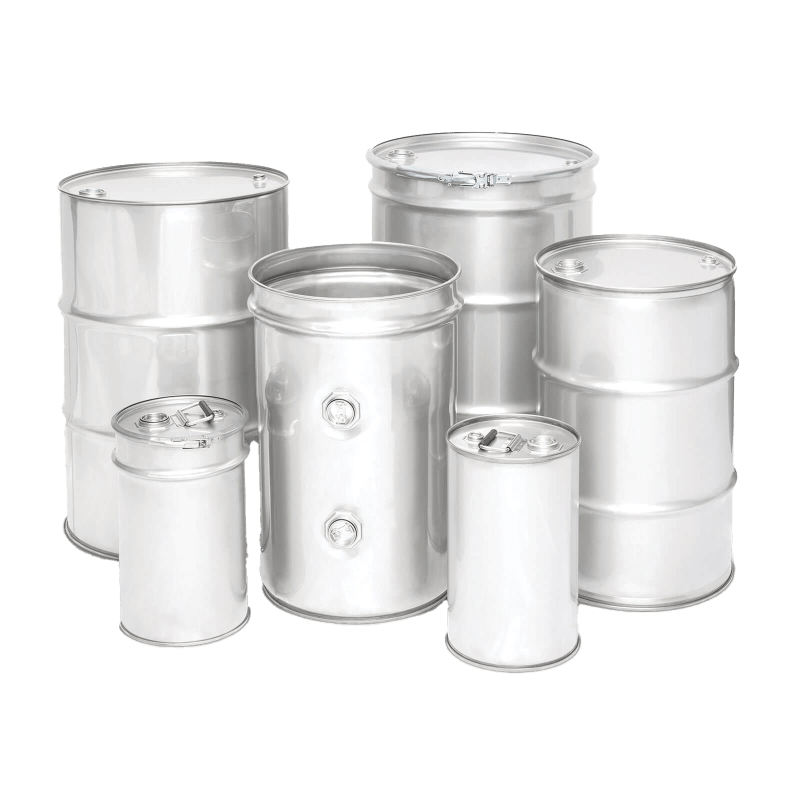Bitumen Steel Drum
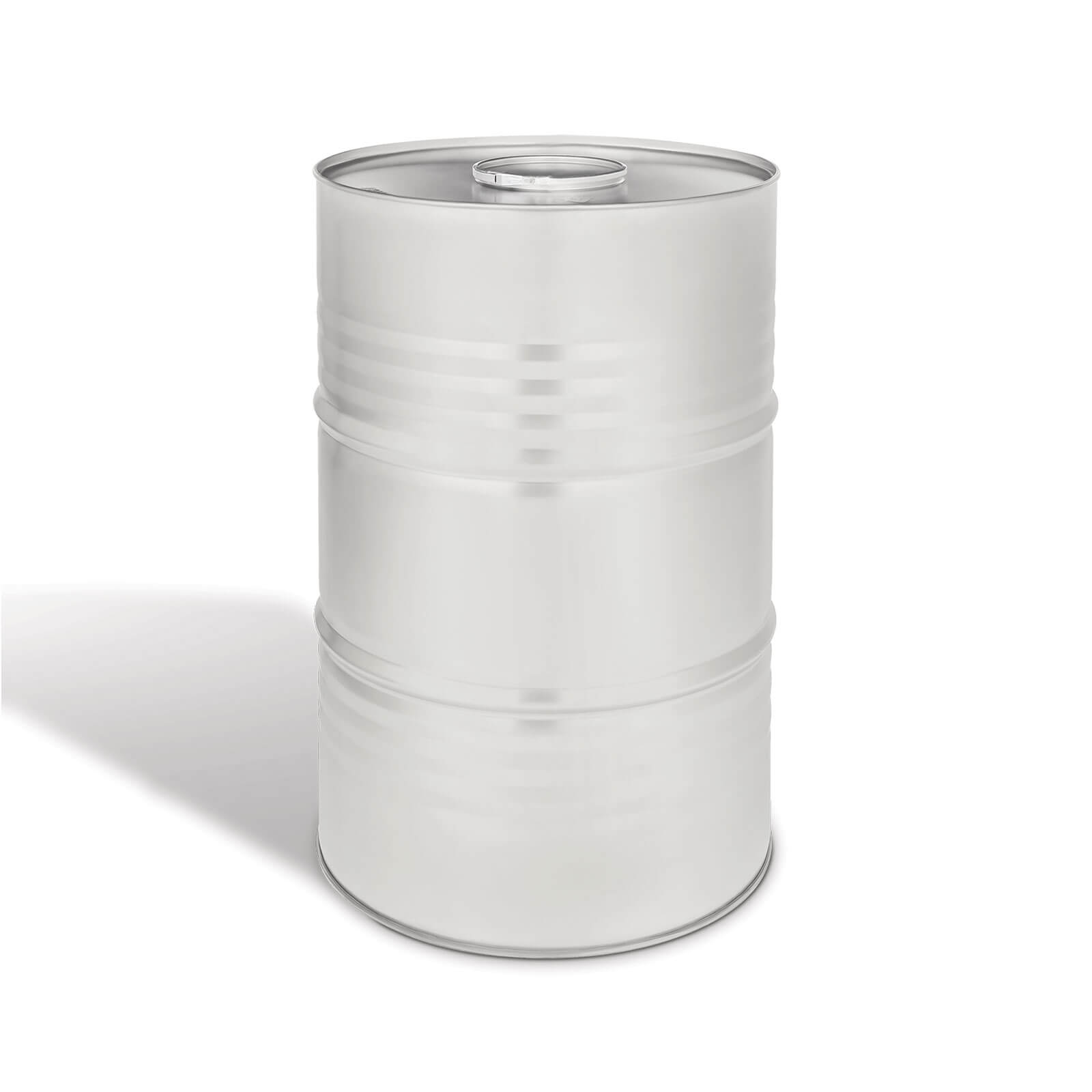
FREQUENTLY ASKED QUESTIONS
A Bitumen Drum is a specifically designed vessel for convenient and risk-free transportation and storage of Bitumen and Hot Asphalt across multiple locations. Bitumen is a viscous, sticky, black byproduct of crude oil distillation. Bitumen and asphalt have extensive applications in the construction sector, particularly for highways and road construction.
On average, a standard bitumen drum accommodates around 180 to 200 liters. However, larger drums capable of holding more bitumen, such as 250 or 300-liter drums, are also available.
Nevertheless, the precise amount of bitumen in a single drum may differ depending on the bitumen’s grade and density.
The weight of a drum of bitumen varies based on the type and grade of bitumen used, as well as the drum size.
Suppose that a standard-sized drum containing bitumen holds 250 liters. Although the weight of bitumen is variable it normally weighs around 1,000 kg per cubic meter.
Thus, it is possible to compute the weight of a drum of bitumen as follows:
Weight of bitumen = density x volume
So, a barrel of bitumen containing 200 liters would weigh around 200 kilograms.
Bitumen does not have a definite expiration date. It has become renowned for its durability and longevity, making it an exceptionally reliable and enduring material. However, environmental variables such as temperature variations, oxidation, and UV radiation exposure can all have an impact on its characteristics, causing it to deteriorate with time.
Bitumen and tar are frequently used interchangeably to refer to the same material. Both are black, sticky petroleum-based compounds used in construction and road paving. However, the two differ significantly:
Composition: Bitumen is a naturally occurring semi-solid form of petroleum. It consists of a complex hydrocarbon combination usually discovered in crude oil deposits. Tar, on the contrary, is a black, viscous liquid formed via the destructive distillation of organic resources such as coal, wood, or peat.
Applications: Bitumen is used extensively in roadway construction, waterproofing, and as an asphalt binder. It additionally serves as a roofing material and sealing agent. Tar is used in conventional road building and maintenance, as well as for roofing and waterproofing. It is also employed in conventional wood preservation techniques.
Properties: Bitumen is more viscous and resistant to temperature fluctuations than tar. Tar has lesser viscosity and therefore easier to apply at lower temperatures. However, it may be less durable and more susceptible to deterioration over time than bitumen.
Hydrocarbons, which are mostly derived from natural reserves or the distillation of crude oil, constitute the bulk of bitumen. It is made up of complex chemical structures, such as polycyclic aromatic hydrocarbons (PAHs). Bitumen is refined to eliminate impurities and alter its characteristics for use in various applications.
The complete term for bitumen is “petroleum bitumen” or “asphalt/bitumen.” In nearly all instances, it is merely referred to as bitumen.
The idea of the “best” bitumen would vary per the requirements and particular application. Bitumen is classified into multiple grades and forms, each with its own set of characteristics. Polymer-modified bitumen, for example, provides increased flexibility and durability, making it appropriate for use in places with adverse conditions.
Other elements that might influence bitumen quality include viscosity, penetration grade, and compatibility with aggregates. Obtaining the best possible bitumen usually requires considering the project’s particular requirements and conditions.
Bitumen’s strength is normally assessed by its penetration value, which reflects how soft or hard it is. The bitumen grows harder as the penetration value decreases. Laboratory experiments, such as the Dynamic Shear Rheometer (DSR) test and the Multiple Stress Creep Recovery (MSCR) test, are performed to assess the strength of different kinds of bitumen.
Polymer-modified bitumen is one of the strongest varieties of bitumen due to enhanced qualities such as increased elasticity, endurance, and resistance to deformation.


